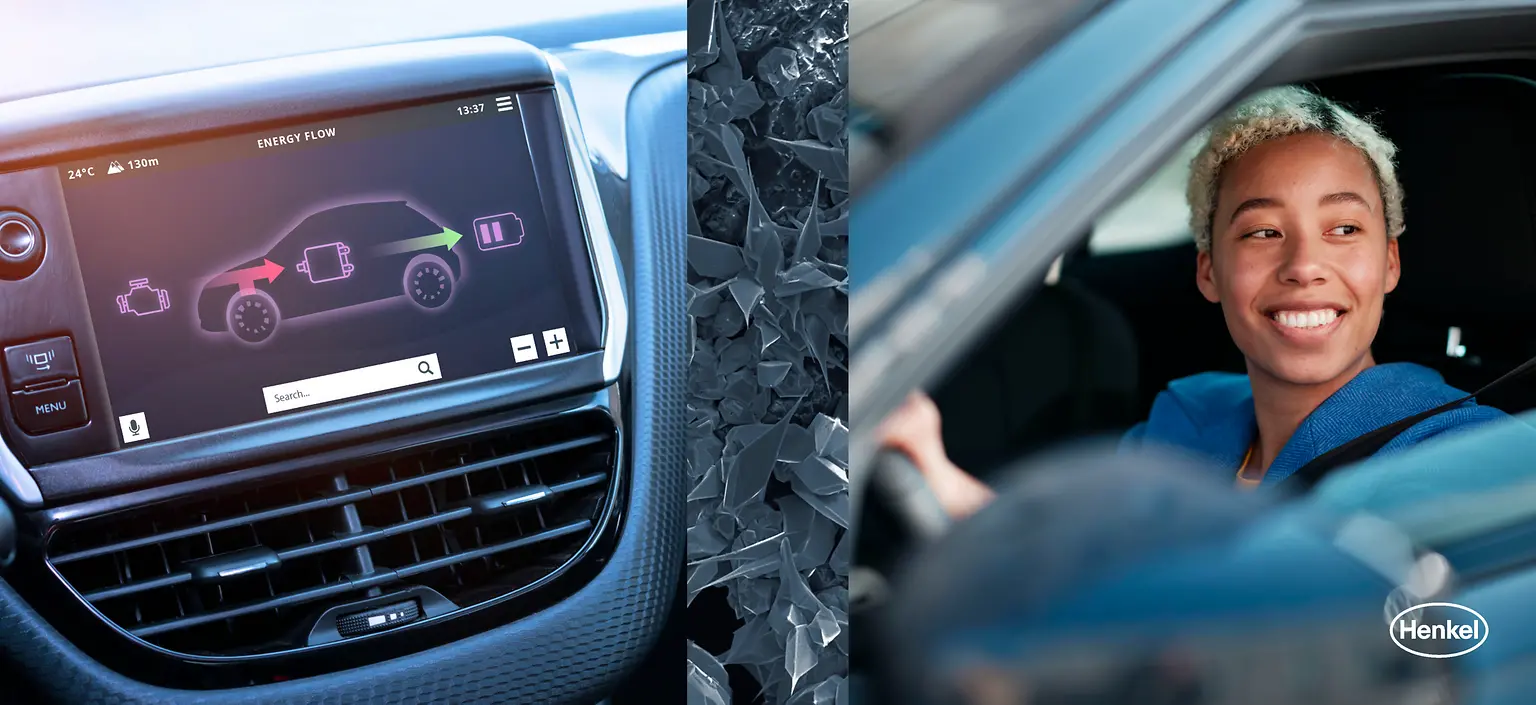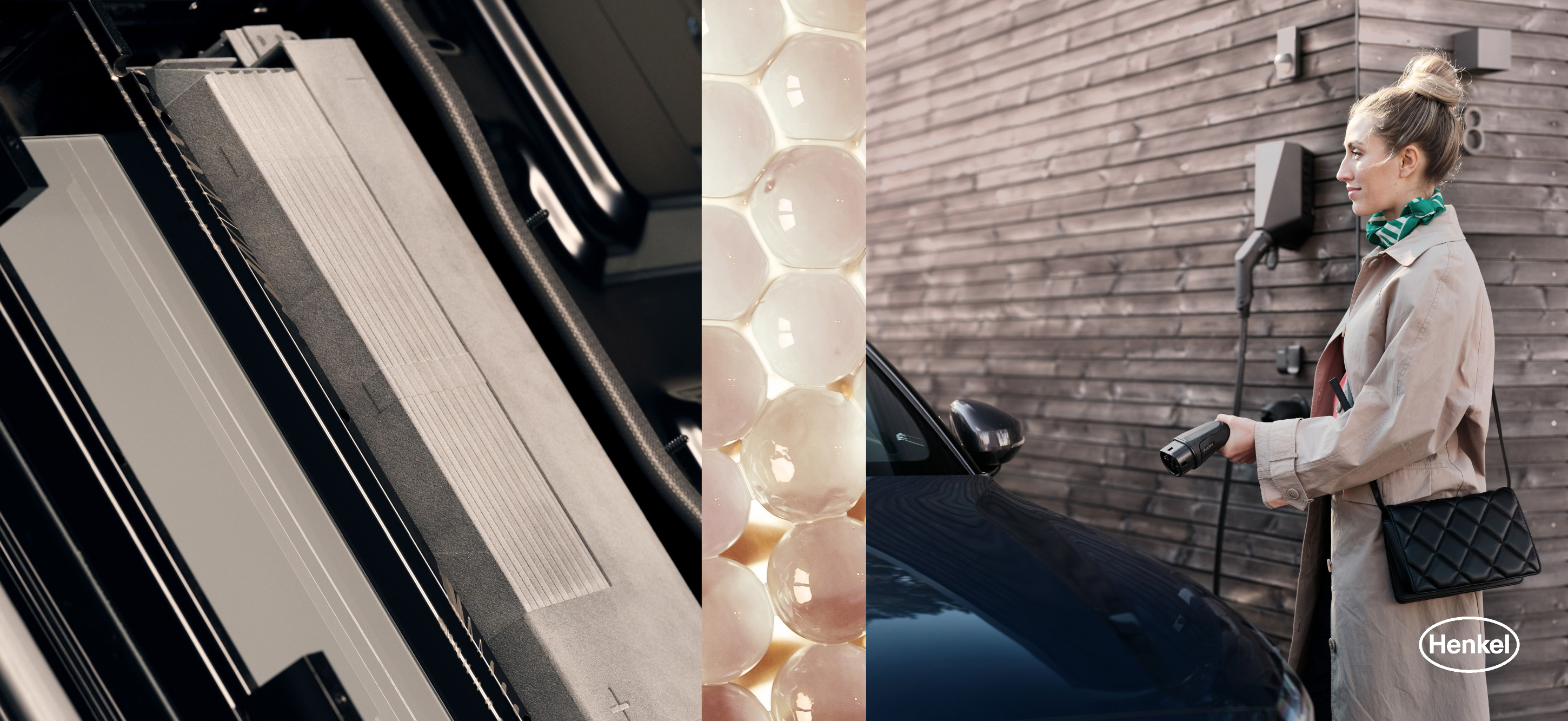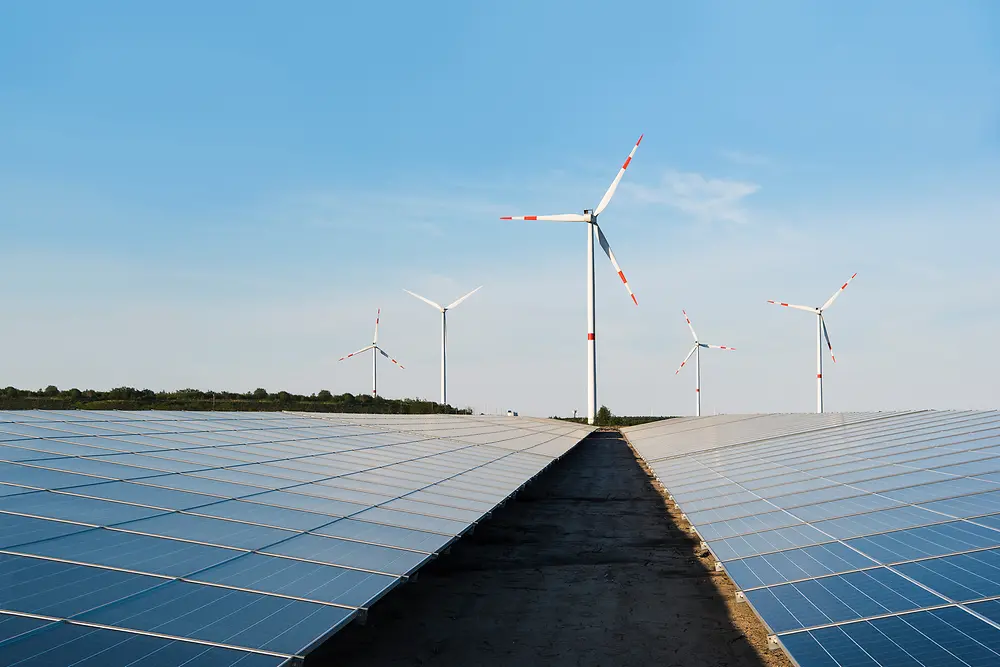Discover the brands and technologies from our business units Henkel Adhesive Technologies and Henkel Consumer Brands.
24 Aug 2023 Dubai
On the road towards zero-emission mobility with Henkel
With sustainability by design in mind, Henkel is enabling the next generation of EV batteries. The German multinational industrial and consumer goods company develops some of the automotive industry’s most important advanced material innovations.
Mounting climate concerns and a worldwide legislative push have led to a surging demand for electric vehicles (EVs), an upward trend that is expected to continue in the coming decades. Globally, the number of passenger EVs is already projected to surpass 100 million by 2026 and 700 million by the year 2040.1
Henkel, a longstanding partner of the global automotive industry, offers a portfolio of more than 200 high- impact solutions in adhesives, sealants, thermal management, and functional coatings. The company´s materials and technologies help to improve the performance, reliability, safety, and sustainability of cars – and also pave the way towards a zero-emission mobility in the future. Today more than 90% of new cars produced worldwide contain Henkel solutions.
This long-term commitment to a greener future on our roads was one reason for the launch of a new world class Battery Engineering Center at Henkel’s Inspiration Center Düsseldorf. Envisioned as a state-of-the-art laboratory for the development of next generation electric vehicle (EV) battery solutions, the Center has been designed to foster open innovation and collaboration with OEMs (original equipment manufacturers), battery manufacturers, and research partners.
“Together, we are aiming to meet the EV revolution’s call for next-generation battery designs scoring high on performance, safety, and sustainability. Close collaboration and co-creation with customers and partners are key success factors for us and part of our DNA at Henkel. To address the industry’s biggest challenges, we brought in experts from the battery industry with deep know-how in areas such as battery recycling, integrated battery design, safety systems, and cell manufacturing as part of Henkel’s ‘Fuel the Future’ team.”, says George Kazantzis, Global Head of the Automotive Components business at Henkel.
Let's take a look at some of the most critical challenges in EV batteries and Henkel's innovative solutions:
- Thermal Management: Henkel has a growing portfolio of thermal interface materials, such as thermally conductive adhesives and thermal gap fillers, both of which are keeping the battery at its optimal operating temperature and preventing potential overheating.
- Battery Safety: In the unlikely case of a fire event inside the battery pack, Henkel’s battery safety materials, such as coatings, pottings, and pads help inhibit the spread of fire outside of the battery to ensure that EV passengers have sufficient time to exit the vehicle safely.
- Battery Lifetime Performance: Henkel's conductive electrode coatings enhance the battery cell efficiency by reducing interfacial resistance and improving electrode stability, while our sprayable dielectric coatings ensure electrical safety by insulating battery cells. Both innovations contribute to better battery performance and reliability.
Henkel's commitment to a greener future supports the UAE's EV market to thrive alongside the global surge in electric vehicle demand. With an anticipated annual growth rate of 27.2 percent in EV sales between 2023 and 2027, the UAE is set to play a key role in driving the e-mobility revolution.2 We continue to push the boundaries of battery technology, co-developing the next generation of safe, sustainable and efficient batteries that will shape the future of mobility.













